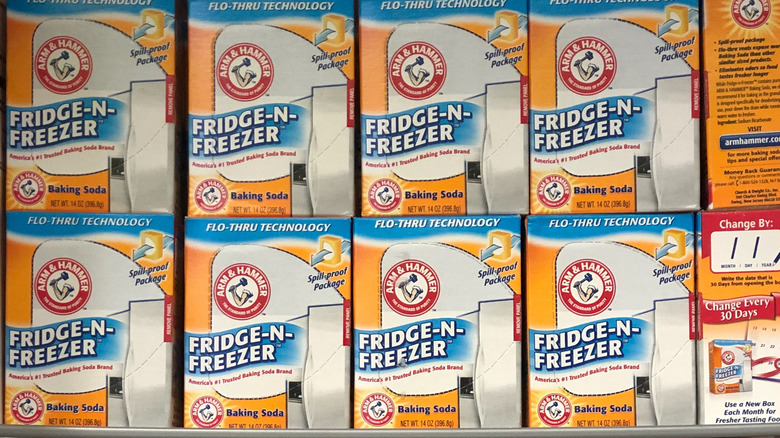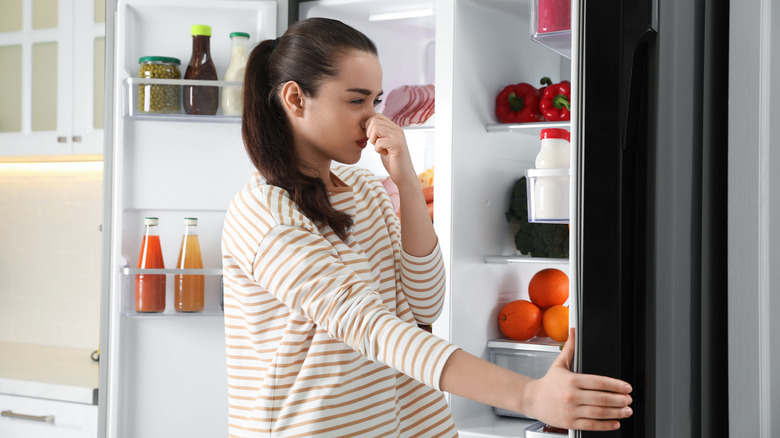The Hack For Ending Up With A Better Smelling Fridge
When refrigerators were first invented in the early 20th century, they were a lot smaller and simpler than they are today, according to the website of the kitchen appliance company Whirlpool. Early refrigerators were basically electric versions of iceboxes sporting one or two compartments, a style that dominated American households for nearly a century leading up to the advent of electric refrigeration. However, as city populations grew and the distance between people and farmland stretched out, the need for longer refrigeration increased.
Today, home refrigerators are usually paired with sizable freezers and are high-capacity appliances that the early inventors of refrigeration could only ever dream of. Some refrigerators even have touch screens and ice dispensers, a series of developments that not even the Jetsons could predict. That said, one issue that hasn't disappeared since the advent of modern refrigeration is the problem of a foul-smelling fridge. Even refrigerated food left unused will eventually spoil and rot, so dealing with lingering odors is just one of many refrigerator tips that you need to have in your arsenal. But what's the best way to eliminate bad fridge smells for good?
For starters, ditch the baking soda
You'll be hard-pressed to find someone who doesn't swear by baking soda as an effective means of controlling odor inside of the fridge. In fact, it's such a commonly-held belief that baking soda is the best deodorizer that several baking soda brands even market their products for this exact purpose. It's true that baking soda has deodorizing properties, per The Straight Dope – but even so, it's not a cure-all every time.
Plus, what if you don't have baking soda on hand? Instead of baking soda, alternatives like coffee grounds or even activated charcoal are great alternatives for canceling out odors. Cooks Illustrated recently tested the deodorizing effects of baking soda against those of activated charcoal. The winner? Activated charcoal. The reason why activated charcoal is supreme lies in the fact that it's made of pure carbon. That means activated charcoal is great at using its porousness to absorb organic molecules that cause bad smells.
Whichever deodorizer you end up using, be sure to place it somewhere where it isn't blocked by shelves or Tupperware containers. For optimal results, choose a wide container for your deodorizer that yields a high surface area and plenty of opportunity for airflow.
Check your fridge for a secret compartment
If your refrigerator still smells a little off after deodorizing it, try checking to see if any unsavory scents or liquids are floating around in your fridge's drip pan. Yes, most people don't know it, but most fridges have drip pans at their bottoms. These pans capture accumulated condensation and store them at the bottom of the unit for easy cleaning, but sometimes that condensation harbors unwanted food scents, per SFGate.
And if you're still getting a whiff of funk after cleaning out your drip pan, it may be time to give your fridge a good cleaning, too. GQ recommends deep-cleaning your fridge every three to four months. That means more than just wiping down some shelves and working around takeout containers, but actually emptying the refrigerator, turning the appliance off, and using warm water and a cleaning solution to remove leftover food and odors. While it takes some elbow grease, you're guaranteed to have a refrigerator that smells better than before.


